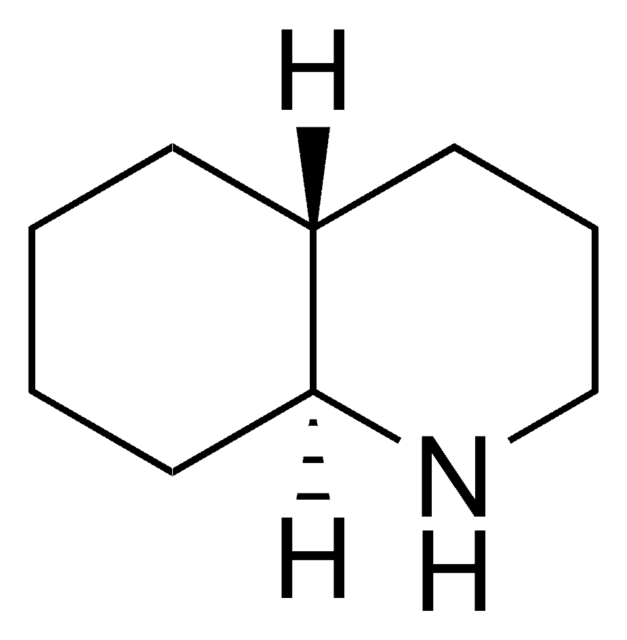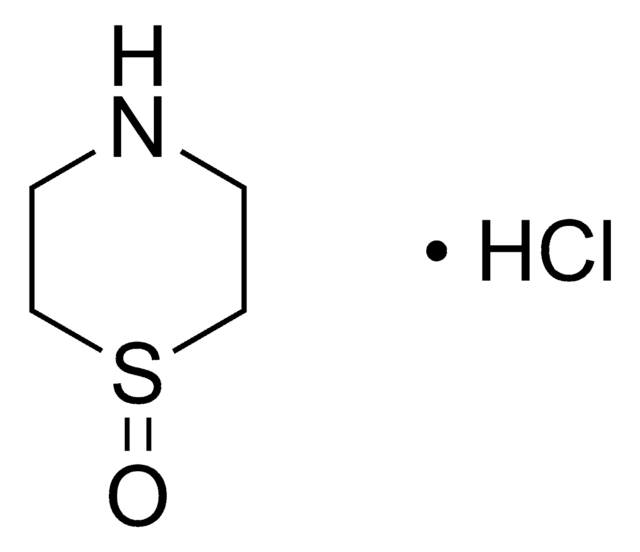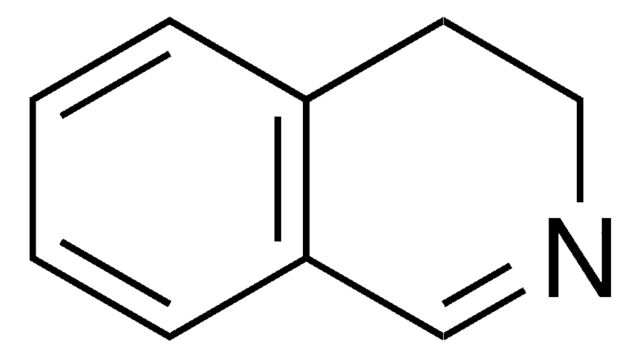262595
Perhydroisoquinoline
96%
Synonym(s):
Decahydroisoquinoline
Sign Into View Organizational & Contract Pricing
All Photos(1)
About This Item
Empirical Formula (Hill Notation):
C9H17N
CAS Number:
Molecular Weight:
139.24
EC Number:
MDL number:
UNSPSC Code:
12352100
PubChem Substance ID:
NACRES:
NA.22
Recommended Products
assay
96%
composition
(mixture of cis and trans)
refractive index
n20/D 1.4904 (lit.)
bp
211-214 °C (lit.)
density
0.936 g/mL at 25 °C (lit.)
SMILES string
C1CCC2CNCCC2C1
InChI
1S/C9H17N/c1-2-4-9-7-10-6-5-8(9)3-1/h8-10H,1-7H2
InChI key
NENLYAQPNATJSU-UHFFFAOYSA-N
General description
Spectroscopic investigations of charge-transfer complexes of perhydroisoquinoline with 2,3-dichloro-5,6-dicyano-1,4-benzoquinone, p-chloranil and 7,7′,8,8′-tetracyanoquinodimethane has been reported.
Application
Perhydroisoquinoline has been used in the synthesis of nelfinavir mesylate.
signalword
Warning
hcodes
Hazard Classifications
Eye Irrit. 2 - Skin Irrit. 2 - STOT SE 3
target_organs
Respiratory system
Storage Class
10 - Combustible liquids
wgk_germany
WGK 3
flash_point_f
174.2 °F - closed cup
flash_point_c
79 °C - closed cup
ppe
Eyeshields, Gloves, type ABEK (EN14387) respirator filter
Choose from one of the most recent versions:
Already Own This Product?
Find documentation for the products that you have recently purchased in the Document Library.
Spectroscopic and thermal studies on charge-transfer complexes of perhydroisoquinoline with p-chloranil, 2, 3-dichloro-5, 6-dicyano-1, 4-benzoquinone, and 7, 7', 8, 8'-tetracyanoquinodimethane.
Refat MS and Abou-Melha S.
Journal of Applied Spectroscopy, 79(1), 11-21 (2012)
Savithra Jayaraj et al.
Scientific reports, 9(1), 11280-11280 (2019-08-04)
Visible-light mediated aerobic dehydrogenation of N-heterocyclic compounds is a reaction with enormous potential for application. Herein, we report the first complete aerobic dehydrogenation pathway to large-scale production of isoquinolines. The discovery of this visible light photoredox reaction was enabled through
Our team of scientists has experience in all areas of research including Life Science, Material Science, Chemical Synthesis, Chromatography, Analytical and many others.
Contact Technical Service








